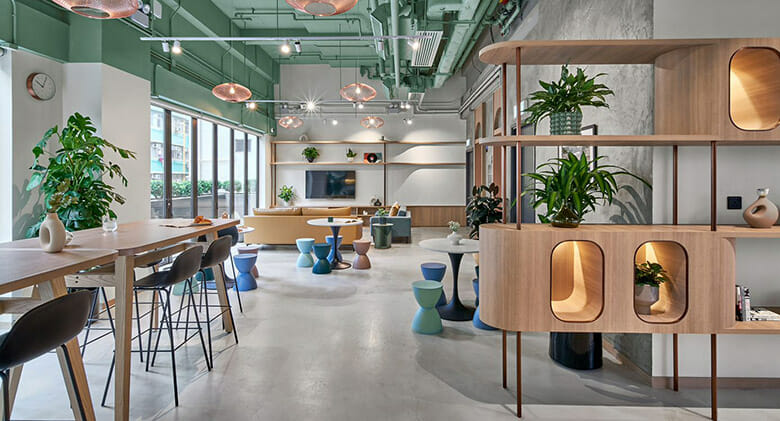
Weave Studios Kai Tak
Weave Living has announced the opening of its sixth apartment community in Hong Kong, unveiling its conversion of a budget hotel in Kowloon East as Weave Studios Kai Tak.
The opening of the 99-unit facility was announced in a LinkedIn post less than a year after the Warburg Pincus-backed firm had paid nearly HK$390 million ($50 million) to acquire the hospitality property, a move that presaged a series of hotel conversion projects by major international fund managers.
“This is the first all-ensuite Weave Studio property,” said Weave Living founder and chief executive Sachin Doshi. “Sustainable living and wellness is a major focus of this new property — we not only have an urban farm, but we have entered into an exclusive partnership with Slowood, a Hong Kong-based lifestyle brand, to introduce internationally-sourced, eco-alternative natural, single-use plastic-free household products and toiletries to Weave Studios Kai Tak and, over time, to all our existing and new properties in Hong Kong.”
Weave is opening its new location within two minutes’ walk of Sung Wong Toi MTR station as PGIM Real Estate, AEW and Hines all get to work renovating their own Kowloon hotel projects, with hospitality conversions becoming a favourite play for investors looking to squeeze higher returns from underperforming assets.
Big on Small Rooms
The debut of Weave’s new location, which is the fourth property under its single-room studio series, comes around seven months after the five-year-old firm purchased the 30,000 square foot (2,787 square metre) hotel property, during which time it has been at work transforming the hotel rooms into compact, long-term living spaces.

Weave Living CEO Sachin Doshi
With each studio unit ranging from 118 to 243 square feet in size, rents at Weave Studios Kai Tak fall between HK$10,080 and HK$14,400 a month, according to listings posted by the rental housing platform.
Located at 103 Tam Kung Road, the property enjoys easy access to Sung Wong Toi MTR station on the Tuen Ma Line, which is part of the Shatin-to-Central link and is the longest railway line in Hong Kong, running 56 kilometres (34.8 miles) through 27 stations.
At the time that it took on the project last year, Weave projected that the Kai Tak property would bring its portfolio citywide to around 700 units, with an estimated gross asset value of $500 million. By the fourth quarter of 2022, the firm’s portfolio should reach 1,400 units, according to Doshi.
“In my view it’s an interesting window to buy (hospitality assets) — since after the value-add works, the properties will open in 2023, by which time the pandemic situation globally will be under more control,” Doshi said. Investors should consider partnering with operators like Weave, which have experience in managing the conversion process with regulators, as well as in operations for such rental accommodation assets, he added.
Separately, Weave in March 2021 acquired a building in Hong Kong’s Mid-Levels to move into family-oriented long-term rental apartments under its Weave Residences brand.
Red-Hot Residential Conversions
With Hong Kong continuing to require 21 days of quarantine for international arrivals, and as the city currently witnesses more than 10,000 new COVID-19 cases daily, values for hospitality assets have plummeted, providing an opportunity for value-add investors.
Hotel investment activity in the past year has largely focused on repositioning existing assets as long-stay apartments or co-living facilities to boost returns and provide a more stable income stream, according to a Colliers report published last November.
In January, Mingtiandi reported that PGIM Real Estate acquired a pair of hotels in Hong Kong for a combined HK$1.4 billion, including the Casa Hotel in Kowloon Tong, with plans to convert the properties into co-living projects.
In December, Boston-based fund manager AEW Capital Management teamed up with local developer Crystal Investment to purchase the 388-room Hotel Sav in Kowloon’s Hung Hom area for HK$1.65 billion, with the new owners said to be planning a repositioning of the property at the time of the purchase.
About a month before that deal, American developer Hines acquired the 158-room Butterfly on Prat hotel with plans to convert the property into a co-living space to be managed by local residential operator Dash Living.
The deals came as Hong Kong’s monthly hotel room occupancy rates in December 2021 were at 72 percent, representing a 23 percent decline from the rates in the same month of 2018, according to recent government data.
Leave a Reply